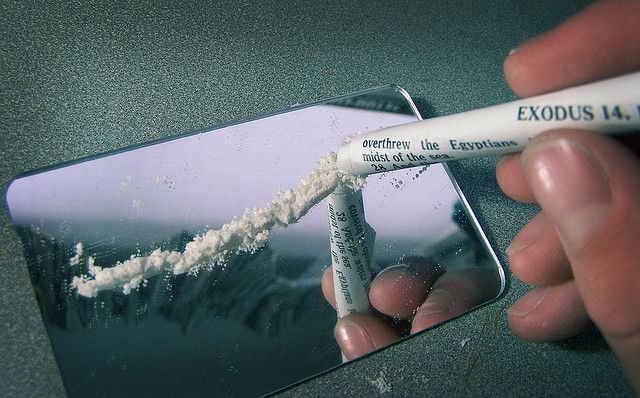Rep. Trey Radel Caught Buying Cocaine, But Enters Rehab For ‘Alcoholism’: Is Cocaine Addiction Too Taboo?

Florida Congressman Trey Radel pleaded guilty to misdemeanor cocaine possession on Wednesday. In a statement following his plea, Radel admitted to reporters that he was an alcoholic, and said he would be taking a leave of absence to go to rehab for his problem. But if his drug of choice was cocaine, why is he seeking treatment for alcoholism?
"Sometimes in life you need a wake-up call," he said at a news conference. "I have had my wake-up call."
According to The New York Times, Radel had bought cocaine “on several occasions” as a freshman legislator in Washington. Last month, in a sting operation, Radel bought 3.5 grams of cocaine from an undercover officer for $250. Upon further investigation, and in cooperation with authorities, he also met with federal agents in his apartment and gave them all of the cocaine he had there. Authorities say that Radel’s arrest was part of a larger investigation into cocaine trafficking in the area. In court Wednesday, Radel pleaded guilty to cocaine possession and was sentenced to one year of probation.
“Mr. Radel’s guilty plea is similar to those entered every year by hundreds of other drug offenders in the District of Columbia who possess illegal narcotics,” said Ronald C. Machen Jr., the United States attorney for the District of Columbia. “We appreciate his willingness to promptly accept responsibility for his conduct.”
Radel plans to enter rehab to address his problem. But in a statement released Tuesday, he said he would be undergoing treatment for alcoholism, not cocaine addiction, according to USA Today. Is there an underlying public relations strategy to link Radel’s problem to alcohol, which is legal, rather than to cocaine, which is illicit?
"I'm profoundly sorry to let down my family, particularly my wife and son, and the people of Southwest Florida," Radel said. "I struggle with the disease of alcoholism, and this led to an extremely irresponsible choice. As the father of a young son and a husband to a loving wife, I need to get help so I can be a better man for both of them."
Rather than just brushing off Radel’s alcoholism admission as a publicity ploy constructed in hopes of not being seen as a cocaine addict, perhaps it would benefit to take into account what happens when one mixes alcohol with cocaine. An informational packet released by the City of London Drug Action team explores how alcohol and cocaine combine for toxic, yet complimentary effects. Some alcoholics use cocaine to reduce feelings of drunkenness and tiredness that comes as a result of excessive alcohol consumption. And, as an alcoholic legislator, it would be important to at least appear sober in congressional meetings after an all-night alcohol binge. So, purchasing cocaine to combat that isn’t so farfetched.
In any case, entering rehab is a step that Rep. Radel hopes will help him overcome his addiction — whatever that addiction may be — and return to the House of Representatives to continue to serve his constituency.
“This unfortunate event does have a positive side. It offers me an opportunity to seek treatment and counseling. I know I have a problem and will do whatever is necessary to overcome it, hopefully setting an example for others struggling with this disease," he said.
Published by Medicaldaily.com



























